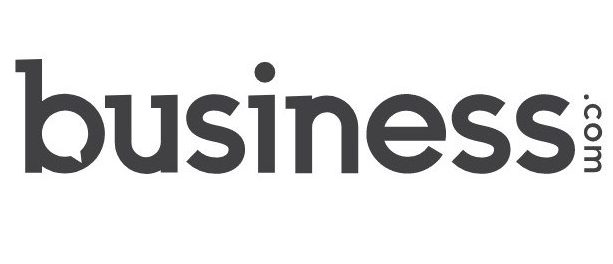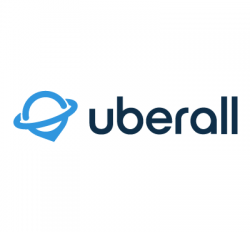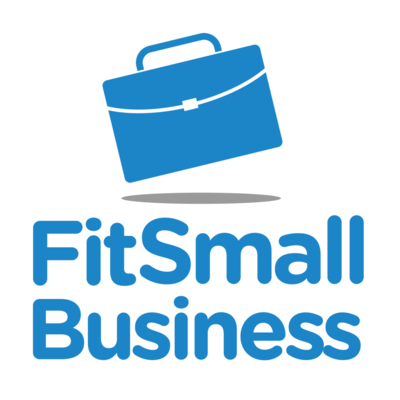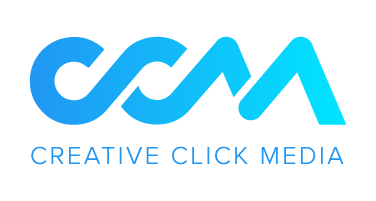Tip of the Law – Elevate Your Legal Marketing with Strategic Evaluation | Ron Latz
Date: August 1, 2024
In this episode of Tip of the Law, Joe Giovannoli and Ron Latz discuss effective legal marketing strategies and the importance of setting expectations.
In the latest episode of the Tip of the Law podcast, host Joe Giovannoli sat down with Ron Latz, a seasoned legal marketing consultant and the founder of LegalFenix. Their conversation delved into the critical factors law firms should consider when selecting the right marketing partner, as well as the common pitfalls agencies often encounter when working with legal clients.
One of the key themes that emerged was the importance of setting clear expectations upfront. Latz emphasized that the responsibility lies with the law firm to define what success looks like and communicate that to their agency partner. If you don’t relay the target, the agency can’t be expected to hit it. He stressed that goals should be specific and quantifiable, rather than vague targets like “more revenue” or “more cases.”
At the same time, Latz noted that agencies also have a responsibility to manage those expectations and provide realistic assessments of what can be achieved. “The agency also does have a responsibility, as well as basically a commitment, to let that firm know if the investment level that they’re considering is completely unrealistic as far as the market dynamics, the competitive landscape, and what it’s going to take to achieve the outcome that they want to actually achieve,” he explained.
Another critical factor Latz highlighted was the importance of addressing infrastructure issues before investing in marketing campaigns. He shared examples of agencies taking on clients with poor intake processes or lacking the necessary systems to handle an influx of leads, ultimately setting both parties up for failure. In these situations, Latz advised agencies to be willing to walk away from potential clients, even if it means forfeiting a lucrative opportunity.
Latz and Giovannoli also discussed the evolving landscape of Google advertising, including the recent changes to Local Services Ads (LSAs) and the introduction of AI-powered “overview” results. While these developments present both challenges and opportunities for law firms, Latz emphasized the importance of maintaining a focus on high-quality, client-centric content.
Finally, Latz offered two practical tips for law firms to consider in the coming months. First, he encouraged firms to review their progress towards their goals for the first half of the year and make necessary adjustments to get back on track. Second, he urged attorneys to start building their personal brand and sharing their expertise on platforms like LinkedIn, noting that the benefits of doing so often become apparent in hindsight.
Overall, the conversation highlighted the critical role that alignment, transparency, and a focus on infrastructure play in successful legal marketing partnerships. By addressing these key factors, both law firms and agencies can position themselves for long-term success in an increasingly competitive and dynamic digital landscape.
Key takeaways
- Agencies and law firms need to set clear expectations upfront about goals, metrics, and what success looks like. Both sides need to be on the same page.
- Agencies should not ignore red flags or take on clients with unrealistic expectations just to chase revenue. They should be willing to walk away from bad fits.
- Law firms should review their progress towards goals for the first half of the year and make necessary adjustments. Attorneys should also consider building their personal brand on LinkedIn to showcase their expertise.
Episode Transcript
Joe Giovannoli
You are listening to the Tip of the Law podcast, where legal insights meet practical advice. In each episode, we bring you stories, insights, and tips straight from the legal industry’s brightest minds. I’m your host, Joe Giovannoli, founder and CEO of 9Sail. This week, I’m speaking with Ron Latz from LegalFenix. Ron has been a champion for ethical agency practices for well over a decade, aiming to make the relationship between agency and law firm mutually beneficial. Ron helps to demystify the marketing world for his clients and ensures they are engaged with the right partners for the right outcomes without further delay. Let’s get to the Tip of the Law with your host, Joe Giovannoli, Ron, how’s it going?
Ron Latz
It’s going great, Joe, how are you?
Joe Giovannoli
Good, thanks for joining me. Been looking forward to having you on here for some time, and we’ve got some fun news to talk about, so let’s just get into it.
Ron Latz
Sounds good. I appreciate the invite. Thanks so much. We always have some really solid discussions, so I’m excited to see where this one goes.
Joe Giovannoli
Yeah, for sure, for sure. So let’s start out really briefly. Man, you’ve had a little bit of a shift. So just for our audience, you know, let us know what you’re doing. Let us know, you know, what LegalFenix is all about.
Ron Latz
Sure, although I did publicly announce the rebrand and renaming about six or seven weeks ago, at this point, I’ve been incorporated for just shy of eight years or so. I ultimately decided to part ways with the previous agency to go out on my own to offer more consulting, advisory and fractional CMO services to law firms. I’ve had the fortunate experiences to not only have worked for one of the largest legal marketing agencies in the country, but also help, you know, rebuild a boutique legal marketing agency as well. And having worked on a fractional basis, I’ve kind of seen the ins and outs of selling marketing and advertising to lawyers, as well as purchasing marketing and advertising on behalf of lawyers. So I finally took that experience and expertise and went fully back out on my own, and I couldn’t be happier with the decision.
Joe Giovannoli
That’s awesome. Yeah, it’s you really have always been a unique breed in our industry, because you do go in with that holistic approach. And you know, you’re, you’re never, you know, pushing a service, right? You’re really looking for what is the best option for, you know, this specific client. So, I’ve always respected that, always, you know, that’s, I think part of the reason why we built such a great relationship is I respect hell out of that so, but let’s, let’s start there, right? You sit in an interesting seat, you know, I’ll call it partner vendor relations, partner vendor, you know, interviewing, you’ll, you’ll help firms with quite a lot there. But what are some of the things that you are looking for, for your clients these days, when it comes to picking the right, and I’m going to say partner, because I think that the right agency is a partner, not a vendor. But what are some of the things you’re talking to your clients about when it comes to picking a partner?
Ron Latz
All firms are at a different stage of those relationships with partners, vendors or consultants, or maybe it’s even just their first go at it, right? I think all those situations are going to be very different, and the expectations that they should have with working with one of those outfits is going to vary. But I think what I’m put in the position, and some some people have called me, kind of the intermediary or a mediator amongst the consultants or the agencies or the vendors and the law firm, what I really try to do is put myself in a position where I can help both sides hold each other accountable, and I can help the law firm safeguard, you know, their legal marketing investments. I want to ensure that they have confidence, that they are able to have conversations with these partners, because many times they don’t know what they don’t know. And agencies, they’re specialists in a more of a technical component or aspect of digital marketing, so whether it’s translating what the agency is saying to the law firm, and then vice versa, so that both sides understand what each is going to be held accountable for. At the end of the day, that’s really what I’m trying to do. I do have a passion for the strategic side of putting together a go-to market plan, ensuring that strategy and goals are in alignment with financial goals and objectives, right? And we do get tactical and discuss some of the, you know, the tactics that we will deploy in order to achieve that outcome that we’re looking to generate here. But in a nutshell, as long as they feel confident and that their marketing investments are performing at a level in which they are comfortable with, that’s why they engage with me and our consulting or fractional offering.
Joe Giovannoli
So when you go into and let’s, let’s pick. Let’s pick a size firm for a minute. Let’s, let’s pick a firm that’s kind of, you know, maybe 10 to 30 attorneys has dabbled in, dabbled, I hate the word dabbled, but has dabbled in legal marketing. You know, digital marketing before, for their law firm. And you know, you’re going in and you’re asked to, you know, they say we’re not getting enough leads, or we don’t feel like we’re getting enough bang for our buck. Here, what are some of the things that you advise them on and some of the things that you start to roll up your sleeves and look at first, where do you go?
Ron Latz
I start all the way at the beginning, Joe, and I asked them, well, what was the goal and objective for this year? If we’re having conversations right now, the first half is going to be over in about three business days here. Second half, what are we looking to achieve? And does that agency partner know how you are defining success? I think that’s the biggest miss whenever someone is evaluating vendors or considering an alternative right at the forefront of that relationship. I don’t think you can underestimate or understate how important it is for each side to know at the end of the day, what are we going to consider– satisfaction, success? What does that look like? And that’s going to vary. Not everybody has revenue-related goals. They might tie back to a financial outcome, but some people want to expand geographical locations. Others want to grow by just means of additional attorneys. Others add on additional practice areas. It isn’t always going to be one increased revenue or case volume, but at the end of the day, I need to ensure that whatever it is that they’re looking to achieve, that, the agency is well aware of that, and we’re looking at the primary metrics and KPIs that are tying back to those goals and objectives. And I think that’s the biggest miss. And if I can go in and then either stop the bleeding or have a conversation with the agency or the law firm, because expectations were somewhat mismatched, you know, I want to get that all out of the way at the forefront, so that we can continue on working on improving and pulling levers to improve performance and not worry about some of the mishappenings that might have happened or the missteps that happened before.
Joe Giovannoli
It’s so interesting. You take this approach of– and if I’m hearing you correctly, and I just want to restate it so you can repeat it, but it is on the firm– in your mind, it is on the firm to set expectations for the agency as to what they need to be seeing to be satisfied and to deem this as a success. Am I hearing you right?
Ron Latz
The firm owns part of that responsibility, and ownership of that for certain. If you go to an agency and you tell like, if you don’t tell them what the target is, I don’t know how you can expect them to hit it, and I don’t believe that just more revenue, more cases, more files, more signups. Those are certainly not smart goals, but they’re also not specifically quantifiable. There is not an exact amount that we are looking to go after. Now, there’s lots of agencies, there’s been a burgeoning of like EOS in firms where they have more accountability for specific numbers across individual employees. You have Mike Morse and Fireproof of firms that have been kind of putting this type of process in place before, which is great. You just need to take that to the next level when you’re looking to make investments in digital marketing, so that you can at least have the agency set and manage and then reset proper expectations as to what that investment is going to produce within that particular channel. Now the agency also does have a responsibility, as well as basically a commitment, to let that firm know if the investment level that they’re considering is completely unrealistic as far as the market dynamics, the competitive landscape, and what it’s going to take to achieve the outcome that they want to actually achieve.
Joe Giovannoli
Yeah, so, and you just took the words right out of my mouth, right? It’s like, so let’s talk about the agency’s role in this, right? Of course, the agency is going to be held to a standard and held to some results, right, and and those expectations that the firm is setting, you know, they’re they, they’re expected to to hold to that and to achieve those. Now, where do you see agencies going wrong from the beginning, right? Because, you know, we could talk till we’re blue in the face about things that the firm itself may do wrong. You know, we’ll talk a little while. I know that you get into the intake process and you get into like, really rolling up the sleeves and helping them to navigate what that whole journey needs to look like, right? But what are some of the, what are some of the mishaps that agencies or missteps that agencies take at the beginning of the process that could really put a relationship in a rocky place from from jump. What are some of those? What are some of those things that you’ve seen?
Ron Latz
I mean, the first one is chasing the money, right? Like, if there are red flags that this firm is outside of your ideal client profile, or they come to you and had mentioned or spoke poorly of previous vendors and said that lead vine was terrible or that marketing didn’t work, and they never took any responsibility or ownership or accountability for some of the you know, failings prior to but they still closed the deal because the revenue, it’s a big deal, Joe, we want to bring in that monthly recurring so we’re going to ignore the fact that they have disparaged other individuals or other vendors. We’re going to ignore the fact that they think that they can achieve results that are similar to someone that has been investing in SEO for a decade plus, and now they’re just jumping in and trying to dip their toes into it, or they’ve never run ads, but they expect the results of someone that has been invested in that channel for a handful or half a dozen years. It just doesn’t work that way. And the agencies know better. But many times they want to throw on the cape to be the hero, to say, I know that those other outfits couldn’t do it. We’re going to be the one that can save the day. Unfortunately, even if they can save the day the common denominator is really the firm. Yep, right now, if you ignore those red flags, right like you’re eventually going to put yourself in a position where you’re ultimately going to turn that account, the law firm is going to continue to be jaded and not believe in these types of marketing efforts and initiatives, and the vicious cycle continues to repeat itself over and over and over.
So, you know, you mentioned intake like there’s, there’s one right, right at the forefront, if the law firm tells the agency that the primary way in which they’re going to define success are sign ups and retainers, right? And then you get into a conversation about, call it paid ads, and you want to launch a Google ads campaign. And as an agency, you’re doing your due diligence, and you’re going down the path of, okay, if I’m going to get this firm all these qualified leads, let me try to get an understanding as to whether or not they can even handle it. I’m not even talking about bandwidth, but like, let’s, let’s dig deeper into the intake process. And you start asking questions about that, and you come to find they’re not using a CRM, they round robin, and calls are going to voicemail. If they have something like CallRail, you might be able to pepper them with some questions about their call answer rate or their abandoned rate. But if you come to find that the intake process is in shambles, they’re missing lead after lead, they don’t have workflows in place to ensure that they can get back to these individuals in a timely manner, all you are doing with that firm is helping them invest in poor first impressions at scale. They’re not going to be able to handle it. They’re going to do more harm than good, because all those unhappy people that just called– guess where they’re going to go. They’re going to go tell friends and family and colleagues that that’s a disaster. That’s a dip for both sides. You’ve got the firm that now is unhappy because they’re getting poor Google reviews. The agency now is churning a client because they don’t have the proper systems in place to support the ad spend that you are going out and getting them these qualified, or at least these leads. It’s a failure, doomed to start. So, like, that’s a big one that I think some do, some don’t, some just want the business, right?
Joe Giovannoli
Yeah, so the firm and and I’ve seen this firsthand time and time again, unfortunately, with even more upmarket firms, you know, 50, 100, 200, even more attorney firms where marketing doesn’t have control or have say over intake, right? The intake process is maybe handled by a firm administrator or something like that, and they’re in different areas, right? But what I just heard you say, and it’s so powerful, is that, you know, there’s a number of things that the agency needs to make sure are in line in order for them to be successful or have a chance at being successful, in, you know, meeting the demands of the firm, right? If the firm comes to an agency and says, I want to spend, you know, $50,000 a month on paid ads, and I need that to to get me 500 new cases a month, just coming up with random numbers here, right? But you know, and you’re in, they don’t, they have a bunch of kindergarteners taking their intake calls. You have no chance whatsoever of hitting that number because the infrastructure is not there, right? That across the board, whether you’re a small two-attorney shop or 1000-attorney firm, that single principle rings true no matter what the question. And the burden always goes, you know, the question about the burden of, is this the firm’s responsibility to solve or is this the agency’s responsibility to identify and bring to the attention of the firm. Does that make sense?
Ron Latz
Yeah. I think that there’s an opportunity– listen if the agency wants to continue to pursue that deal, because it’s a $50,000 opportunity, and they’re going to charge whatever, 20 to 30% of a management fee on top of that. And they come to find that their website like, maybe they don’t have a good enough designed landing page for the campaign, or you uncover that intake really isn’t a well oiled machine. You could theoretically set that expectation with the firm. Say, these are all of the demerits. Here’s the Dirty Dozen, the list of all the things that we think that you should improve before investing those dollars, right? Push comes to shove, eventually, like that law firm, they will find someone that’s going to take those dollars, right? I just think you put your agency in a better position if you are the one to turn down that business, right? Because you’re not just chasing the money. You don’t want to deal with a client that’s going to come on churn within three to six months. You know, you blow your CAC payback period out of the water because you had to onboard them, get systems access, get everybody up to speed like you’re already in the red. I would say you should be walking away from that, but still set the proper expectation right now and then when they go to another agency and all of those things happened that you told them they’re going to think you had the crystal ball and could see the future and they can come back and lo and behold, maybe they’ve got intake taken care of. Maybe they’ve adjusted their landing pages to increase conversions, right? Again, playing on with the hypothetical scenario there, but you know, yeah, I would. I had individuals within the agencies that I worked with that would become very frustrated when I walked away from opportunities. Yep, it’s just juice that isn’t worth the squeeze. Man, just really is not worth the squeeze. So why do that? Now, the amount of people that then came back, call it 6, 12, 18 months later, it’s not 100% but a good, a good portion of them still have the problem. Yeah, they go and it, and we might not have gotten the business. They might have solved the problem, and someone else might have gotten it, but like, we’re still going to be looked at in a positive light, and absolutely have to do in order to escape the sometimes unfortunate reputation that some legal marketers have to carry because of a few bad apples in the industry.
Joe Giovannoli
Yep, and saying no can sometimes be the biggest selling point on you, because you’ve turned, if you’ve turned somebody down, they want to figure out why, and they– typically not always– but typically end up finding their way back after they’ve solved the problem, and they want to raise their hand and be like, Hey, I fixed the problem, that reason why you wouldn’t work with me. Will you work with me? Now, you know I and I promise you that I wouldn’t make this about you, but I’m going to take a second like, this is all this is one of the areas that you’re a silver bullet. Like, you can come into a firm that’s like that, right? And think about it from an agency’s perspective, literally, we just talked about this. So I can bring you into a situation where I’m like, Hey, I don’t think they have their ducks in a row. Here are some of the challenges I’m facing. I can introduce you into the mix, because you know what to look for. You know what they were going to need. And you can actually put the time and effort into helping them to get to a place where they’re ready to make this investment, right? You know, I know that you’ve spent a lot of time with personal injury firms and, you know, family law firms, and you know, kind of beat as we’ll call them, B to C facing firms. You know, the digital marketing channels can be very lucrative for those practice groups, no matter if they’re in a small firm or a large firm, they’re very, very lucrative. But if they don’t have their ducks in a row, as we’ve just been talking about, it’s useless. So you’re that silver bullet. You can be brought in to help them to identify what some of the gaps are, and help them to either fill them or recognize that maybe they’re never going to fill them because they’re not willing to take direction. And that’s good, that’s good intel for the agency to know, so that way they don’t jump into something they can’t be helpful in. Would you agree with that?
Ron Latz
I mean, that would be the first time I would be referred to as the silver bullet, like, I’ll take that and run with it all day, Joe. Context that needs to be had to ensure that both sides, you know, know it is what’s going to ultimately be successful. I do, like, I have an appreciation for the agencies, especially ones like 9Sail, where, when you have a conversation, if something is off or doesn’t seem right, regardless, if you can help maybe someone else. Can you point those people in that direction? And I just feel like that, whether it’s karma or just like, whatever it may be, eventually, I think it does. It does come around, and I think that those, the right partners are going to appreciate that approach.
Joe Giovannoli
Oh, I agree completely. And, you know, we actually had a conversation with a prospect, literally yesterday that I just was like, and I have this saying, and it’s not my saying. I stole it from somewhere, you know, JDFR– just doesn’t feel right. And walked away. I walked away and I said, You know what, I’m not the right person. But I think this agency who also shares a very similar style to me, I think that they have more services that can actually help you with that. We’re going to get you where you want to get to. Why don’t you have a conversation with them? Right? And I think it’s so important, and there’s been plenty of times where we’ve introduced you into the mix, because I’m like, these people need infrastructure help before they even start spending on campaigns, because it’ll go nowhere. So well, you can quote me to say that I called you the silver bullet. So let’s go a little bit deeper into you. You have such a vast experience, or set of experiences in this space, let’s talk a little bit about some of the newer Google advertising things that have come out. You know, LSAS are not new, but there’s some rumblings about things that have been happening in the LSA world, about Google maybe bidding it out to multiple people. And, you know, we’re seeing a lot of those, those trends starting to pop up. But what are some of the things that a firm that maybe has a modest advertising budget that, you know, they’re, they’re again, B to C, let’s say B to C practice groups, just to make it easy. What are some of the things that you’re seeing people are having success with, you know, spending on and investing in.
Ron Latz
Well, listen, like you had said earlier, I think that all of the channels work, it’s just whether or not they’re going to work for you, right? Like, there are some markets where entering into the SEO market is cost prohibitive. Same thing with Google ads, right? There’s also, you know, the local services ads market is pretty volatile. It’s like, if you missed one phone call, they put you in the doghouse real quick with local service ads, right? So if you’re not incredibly responsive, if you’re not using the platform on the back end, and marking things as booked or archived, or putting in those deal criteria. In that criteria, the information, I do think those that are much more active, updated daily, are very responsive, right? Like they’re showing you now in some of the ads, how responsive these firms are, right? So if one firm says they respond within minutes, and the other firm says they respond within days, the one that responds within minutes is going to get that phone call. I do think that other channels, whether it’s traditional, digital, right, like it just has to align with your overall goals and objectives, and is this going to help you achieve the outcome that you desire?
You talked about some of the new things that have been coming down the pike, right? I think the most recent updates with LSAS are branded LSAs, and now the introduction of an LSA in the local map pack, which just makes it even more competitive. I don’t recall if they said that they’ll still leave the Google Ad map listing within it, which would bolster it from three to four, possibly five in that area. I don’t recall, but, but either way, right? It’s another ad unit that Google can put a placement in to make more money. Like that’s, they are in the business of maximizing revenue per impression. So if they can put another ad placement somewhere else, they’re going to do it, right? I think the thing that was really shady and just somewhat gross was the introduction of and also auto enrolling everybody that was in LSAs to LSA branded ads. I think that, you know, you can make an argument that now you’re paying significantly more for a branded search query, right? Your branded ad is likely going to be significantly less expensive than what you’re gonna have to pay per call now on LSA. The only way you could see if those economics are working or are in your favor is if you test it, right? You gotta turn them on, turn them off, turn it all on, turn it all back off, just to see if your average cost pers are in alignment, or at least, like just get somewhat of an apples to apples comparison with your organic or other channels to see if it’s still within alignment. And I mean, if you want, we could talk about what the I would call it, like the nightmare that has been AI, SGE to AI overviews, like, I really don’t see it that frequently within, like our category, within legal, like, your money, your life, like you don’t see a ton of it, like I was part of the beta, whatever it was, six to nine months ago, and got like this sneak peek through search labs to see what I was seeing. They’re just, I mean, they were glorified Featured Snippets, right? Yeah. Zero results, yeah. And now some of these AI overviews, like, I think in more like widget-based categories and industries, whether it’s ecom or, like consumer product goods, you know, things like that I even saw yesterday. I don’t know if it was Joy Hawkins or Lily Ray, but it might have been Lily Ray, but Google is now getting into the credit card comparison space. Yep, right, which is interesting, since it is in finance. But you know, as long as you’re producing high quality, engaging content that is centered on the client, I do think you put yourself in a better position to start, you know, maybe getting some of those AI overview results, if you will. Yeah, I do think that you will see across legal, like, if Google is serving up more zero click Results, no click Results, like, we are going to see, like, a decline in traffic to some of these sites, right, right, right. I don’t think that it’s going to be an apocalypse, but I do think you will see those firms that probably have like, like, high volumes of poor quality content, you might take a hit. Like you should be looking at that. You should be talking with your agency, if that is one of your website, that is your website, right? Like, you should be doing audits of your content anyway to see if we should be redirecting, kill or rewriting or refreshing. Like, that’s something that you’re doing anyway on an annual basis, more frequently, depending upon your investment. So you know that’s, yeah, it’s interesting to see how that’s going to play out.
Joe Giovannoli
100%, 100%. So a couple of things that you said there, there were a lot. I have this feeling– and a little bit unfounded– but some, I’m seeing and hearing some rumblings, you know, about court cases and stuff. I have a feeling that healthcare and legal are going to be two of those areas that are going to be censored in this AI overviews kind of world. I think that there’s a lot of risk in Google displaying results in that way, because it could literally be somebody’s life that they’re, they’re, they’re dealing with there, right? So I’m interested to see how that shakes out, and how that goes. Google’s also very much scraping and then kind of pretending that it’s their own, you know, scraping, you know, the website and the websites, and coming up with a summary. I’m curious to see when somebody starts barking about that, what that’s going to look like, you know, but my biggest thing is that I’ve had this, this gripe, and I’m sure most people do, for the longest time, it is become so blatant how little Google cares about the user, their user experience, yet they tout that user experience is so important on websites and everywhere you’re turning they are monetizing the top of their their search engine and really, they had an opportunity, and maybe they still do, but they had an opportunity to rearrange the way that their their SERPs look and acted, to show users that, hey, we really care about you getting quality content first. They could have done that and still made their ad revenue. They still could have. And in fact, some of these other players that are starting to pop up in the search engine space probably wouldn’t have been as successful if they would have just played a little bit more tactfully. Along with this AI, introduction of AI– I don’t know how you feel about that, but, and I’ll get off my soapbox, but it really pissed me off when I started to see some of the stuff they were doing, because I’m like, You know what? The people have invested so much time and money and effort into using Google as like, the end all be all. And the second that there was another money making scheme that you could throw into the mix, they did it and they tripled down on it.
Ron Latz
There was what three or four weeks were like, you could only get Reddit and core results onto the top handful of results on the SERP page. You see things like Forbes going into best lawyer lists, you know, because of their prominence and their authority. Time will tell how this all plays out. I think that if you continue to focus, and everyone says, you know, quality content, content that’s, you know, focus on the consumer. Listen. You know what that is when you are reading it online, right, when you go and you’re about to make a purchasing decision and you’re doing your due diligence or your research, you know which websites you bounce off of, you know, which resources you trust, right? Yeah, and the ones that you don’t, you try to verify. I do think that there was an opportunity, and it’s not, maybe it’s not completely gone, but, you know, I’m just waiting for the day where the whole entire page is just a paid ad unit, right? You have LSAs, paid ads, like how, like they will monetize AI overviews, you know, in some way, shape or form. Who knows how they’re going to do it? Yeah, it’ll be interesting to see how these things continue to progress.
Joe Giovannoli
For sure, it will, it will. So we’re going to take a quick break here. We just wanted to take a moment to acknowledge our sponsor for the Tip of the Law podcast, 9Sail. 9Sail is a law firm-focused digital marketing agency specializing in providing lead generation and awareness-building services such as SEO, paid search, content creation, and Digital Public Relations. Grow your firm with 9Sail. So Ron, we’re at the top of this call here. I really appreciate your time. I know you’re busy, so I want to, I want to leave our audience with one tip or one insight that you have, that you feel is something that they should know or something that they might be able to actually implement at their firm today. And we talked a little bit about, you know, some of the future of Google and where we’re at, but what’s, what’s the hot topic right now? What’s the thing you’re talking to folks about that you feel that our listeners should be aware of, or should think about implementing at their firm.
Ron Latz
We are three business days away from the end of the first half, so there could not be a better time to look back where you were in January or Q4 last year, to say, where do we want to be in 2024? Where are you progressing against your goals? How far behind are you? You know? What do you need to do to course correct this shit, to hit those targets by the end of the year? Right? I think that there’s also, you know, now that the summer months, the vacation months, have been presented to us. I still am having so many conversations about attorneys and firms that are still hesitant to jump into kind of building their personal brand and going on a platform like LinkedIn to share just their experiences, their expertise, or some level of thought leadership. It’s a conversation that, even on my normal consulting calls, where most of our discussions are centered around SEO and ads, this topic still continues to rear its head, and I would just say, just go for it. You don’t have to post, jump into the comments. You don’t want to jump into the comments, start building your network. You don’t want to build the network like, start liking some of the stuff that you do appreciate. So at least your feed is filled with relevant information. You’re gonna look back in whatever, however long it is, like even me two years ago, I’m like, Why didn’t I start doing this earlier. Yeah, right. And I don’t, I don’t, like, my goal on those platforms is not lead gen. My goal is to continue to nurture and develop relationships like we have over the past couple of years, to be invited and hopefully have more speaking opportunities and really to learn, like new stuff like everyone’s got a different approach, and they’ve tried different things, like the things that I steal outside of legal that I think can be brought into legal, like, whether it’s chiropractors or dentists, like, right? Like, I see these individuals out there, and I’m like, Just watch, just follow. And eventually, right, you can produce your own stuff, so that those are the two things that you can do without myself or an agency like look back, do a current state. What were the goals? Where are we? What can we do to make sure that we can pick them up if we’re far behind, or if we’ve got to double down and we’re on pace to beat them, great. And then also, you know, get on LinkedIn, start sharing some of your thoughts, because I promise you, there are people out there that are going to value it, and it’s only going to be better. To be beneficial for you and the firm, the sooner you do it.
Joe Giovannoli
Yeah, 100% agree with both of those. Ron, thanks so much for being here, man, appreciate it. I’m sure, sure I’m going to have you back on towards the end of the year to have another similar conversation, maybe a little bit more around metrics for the next year. But I really appreciate you taking the time and just and really enjoying the budding partnership we have. So I appreciate it. Thank you all for tuning in, and we look forward to seeing you on the next episode. Take care. Thank you for tuning in to Tip of the Law podcast hosted by Joe Giovannoli. If you’ve enjoyed today’s episode, be sure to subscribe to Tip of the Law and leave us a comment wherever you listen to your favorite podcasts. You’ve been listening to Tip of the Law.
















